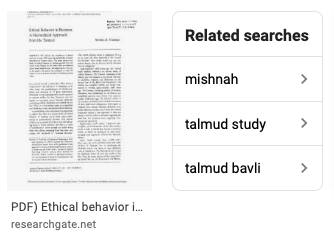Is The Talmud Paper Necessary?

With a precedent set beginning first semester last year, all juniors are now required to write a Judaic Studies paper in their Talmud classes. Ramaz students are no strangers to history papers, but the feeling amongst many juniors is that the addition of the new Judaic Studies paper is an unnecessary burden during an already very difficult year. For the paper, juniors are instructed to ask a specific halakhic question that pertains to them and research that area of halacha to compile a myriad of responses. Across both students and faculty, there are many different opinions about how complex the requirements for the paper should be, or if the paper should even be assigned at all. For this article, The Rampage aims to understand both sides of the argument by interviewing Rabbi Schiowitz, Talmud Department Chair, who is in favor of the Judaic studies paper, and Rabbi Albo, who is not. Here’s why…
Rabbi Albo feels that although the paper is a nice idea in theory, as of now, it is not benefiting students and must be changed. The paper was intended to provide students with an opportunity to strengthen their writing and researching skills in Judaic studies, but according to Rabbi Albo, this has not been the result. “The parameters of the paper are unclear to students across the levels,” said Rabbi Albo, “The paper needs to be adjusted for each specific class.” He feels it is unfair to expect the same level Talmud paper from a student in a general or regular class, who isn’t as seasoned in their Talmudic education, as from an accelerated or honors student. An inquisitive, less formal and lengthy assignment would much better suit the general and regular levels. “Honors students should be coming up with their own thesis, while the accelerated levels should simply do research,” Rabbi Albo suggested. “The way it is right now, it does not accomplish what it’s meant to accomplish. I feel it should be adjusted by level, and taken more seriously across the board. If you’re not gonna do something 100%, don’t do it at all.”
Many students would agree that the specific instructions for the Talmud paper are extremely unclear; popular opinion also remains that this assignment is one that takes a lot of time but produces very little reward. In order to dive deep into relevant halachic questions, most students would much prefer discussions in class or in Mishmar after school to writing a paper. Students usually choose Talmud-paper topics of interest to them, but the fact that the paper is graded detracts from that interest. Since this paper counts toward a student’s grade as much as a test, it’s difficult to take the time to really enjoy the halakha students are learning—they think of it as more of an obligation.
On the other hand, Rabbi Schiowitz believes that the Talmud paper is a beneficial and necessary assignment. It is not a strictly “Talmud” paper, but rather an “analytical assignment that allows students to research a field of Judaism that is of interest to them,” said Rabbi Schiowitz. “The idea is to encourage students to be driven by their own interest in Torah.” Additionally, it helps students practice their writing skills. Since Ramaz is a dual curriculum school, it makes sense for there to be a writing assignment in the context of Judaism.
To address the common complaint that the Talmud paper is adding more work to an already very hectic junior year, Rabbi Schiowitz said that one of the junior Talmud tests was dropped to compensate for adding the paper. Therefore, in retrospect, the amount of work evens out. Additionally, “Every grade has some form of a Judaic writing assignment,” he added. Freshman write questions about the parsha, and sophomores write divrei Torah. The Talmud paper is clearly a more difficult and time-consuming assignment than the other grades’ assignments, but as students learn more throughout their time at Ramaz, it makes sense for assignments to get harder.
When it comes to the question of whether the difficulty of the assignment should be adjusted by level, Rabbi Schiowitz responded that “the assignment is slightly modified for each level,” and each teacher tailors the assignment to their specific class. A student’s personal interest in their topic provides them with a deeper appreciation of the research, all while enhancing their Judaic skillset and satiating their curiosity.
All in all, the Junior Talmud paper is not as scary as it seems. Rather, it should be approached as an opportunity to conduct proper research about a topic of personal interest and write about it. Above all, for students in a yeshiva, the paper presents an opportunity to advance the depth of Torah knowledge. Students have access to faculty in the entire Judaics department for assistance, and the Talmud paper is an opportunity to extend Judaic learning beyond the traditional classroom environment.


